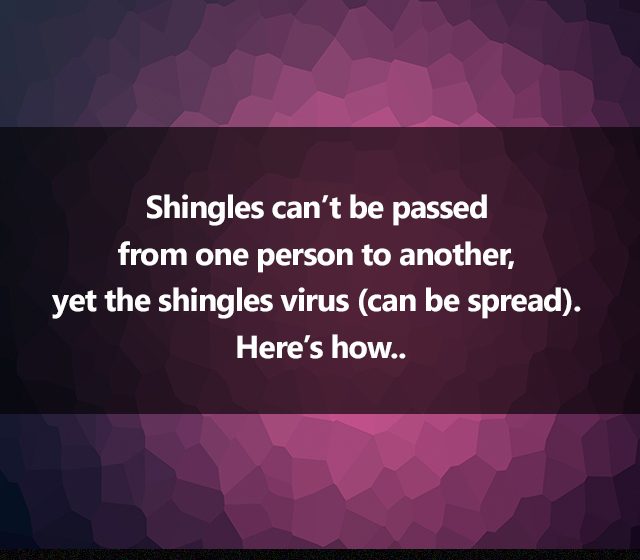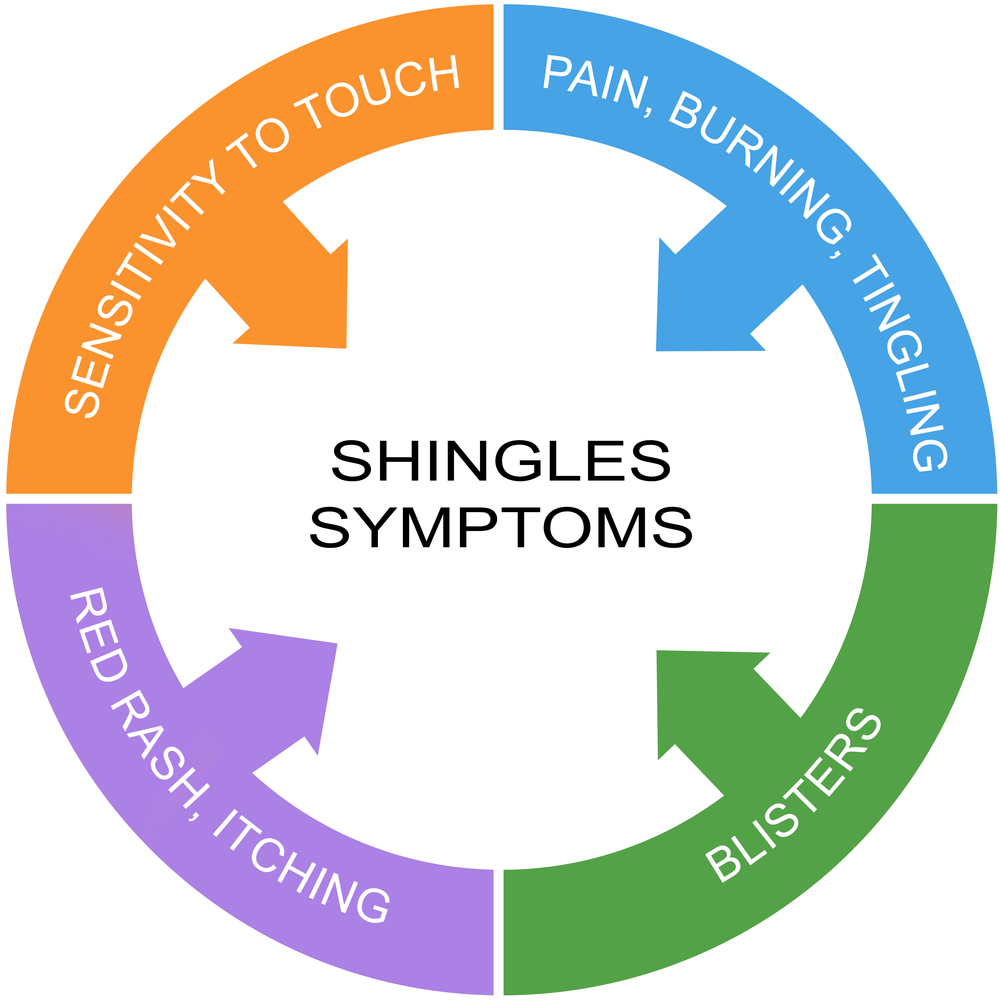
How To Treat Shingles – Why You Need to Boost Your Immune System
Shingles is not only common in people over the age of 50, but it can be triggered by a weakened immune system.
A weakened immune system can cause shingles to wreak havoc by spreading to other parts of the body after appearing at the initial site.
Ideally, the antibodies left over from a chickenpox infection should neutralize the varicella-zoster virus that causes shingles, but with a weakened immune system, the antibodies are not strong enough to prevent the shingles infection.
Boosting your immune system is not only beneficial in preventing a shingles trigger, but if a trigger occurs because of a weakened immune system, it would be to your advantage to strengthen your immune system to help with the recovery. Let’s look at the role a strong immune system can play in shingles.
Reasons for Weakened Immune System Susceptibility to Shingles
Age: Adults are the major group of individuals that are affected by shingles.
Individuals over 50 are more likely to contract the infection if they have had chickenpox.
The immune system declines with age, causing it to function slower and increases the potential for developing shingles.
Prescription Medication:
There are a number of medications or immunosuppressant drugs that can weaken your immune system and make you more susceptible to infections like shingles.
Medications such as steroids, chemotherapy drugs, and mycophenolate mofetil (CellCept) can weaken your immune system.
Diseases: Certain medical conditions can play a role in disrupting immune system function and make you vulnerable to contracting the shingles infection.
Hodgkin’s disease, HIV/AIDS, lymphoma, leukemia, and diabetes are diseases that can attack the immune system and reduce its strength to fend off infections.
Why Strengthen Your Immune System
Bear in mind that your immune system is essentially your body’s natural defense system against pathogens, such as bacteria, viruses, parasites, even a fungus that can make you sick.
A strong immune system will create a barrier that can stop the reactivation of the varicella-zoster virus that causes shingles.
In the event that you contract shingles at a time when your immune system is weak, it is quite possible to boost the immune system, which would produce white blood cells, and other chemicals and proteins that attack and destroy the virus as it spreads.
How to Boost Your Immune System
There is no quick remedy for boosting your immune system, but there are certain habits that you can adopt to rev up your body’s defenses against triggering shingles:
Exercise: A sedentary lifestyle can make your immune system sluggish.
Maintain a Healthy Diet: A balanced diet and one that is rich in antioxidants can boost resistance to infection.
Get Enough Sleep: Sleep deprivation and fatigue suppresses immune system function and make you vulnerable to infections.
Reduce Stress: Constant stress releases stress hormones such as cortisol and adrenaline, can weaken the immune system.
Shingles can be triggered or worsened if a person’s immune system is weak.
It is important to prevent shingles from spreading to other parts of your body and strengthening the immune system can achieve that end.
Exercise, sleep, a proper diet and reduced stress can all boost immune system function.

Shingles Symptoms Word Circle Concept with great terms such as pain, itching, blisters and more.
Treatments for Shingles
In the United States, there are roughly 96 shingles-related deaths annually.
Incidences of these deaths largely affect the elderly or individuals experiencing a weakened or suppressed immune system, making them susceptible to contracting the infection.
While vaccination against shingles is the best option to prevent its manifestation, those who are not inoculated and fall victim to the infection are faced with the confronting a treatment plan.
Here you will find the different available treatments for shingles.
There are a number of anti-viral medications that are available for treating shingles.
Acyclovir (Zovirax)
This is an anti-viral drug that has been used in the treatment of shingles for many years to reduce the symptoms of the infection.
Intravenous acyclovir of acyclovir is employed in the treatment of more serious cases of shingles. An oral dose of 800 mg, taken five times a day, for a period of a seven to ten days, when the rash has completely crusted over is recommended.
To prevent recurring episodes of shingles, it may be possible to take lower dose acyclovir for an extended period of time.
Acyclovir treatment should begin at the first sign of symptoms such as tingling, burning, blisters, and should be taken exactly as prescribed by your doctor.
The possible side effects of this shingles treatment include:
* Kidney failure
* May cause dangerously low levels of red blood cells and platelets in the body
* Changes in your mood or behavior
* Liver issues
* Muscle pain
* Skin and vision
Valacyclovir (Valtrex)
This oral anti-viral shingles drug is usually taken in a dosage of 1 mg. three times a day for a period of 7 days.
Valacyclovir should be taken at the first sign of a symptom or within 48 hours of a rash appearing on the skin.
It works by stopping the spread of the virus that causes the infection, preventing the replication of viral DNA that allows for viruses to multiply.
Possible side effects of this drug include:
* Nausea and vomiting
* Headache
* Reduced white blood cells
* Liver issues
* Hallucination
* Seizures
* Encephalopathy (brain disease)
* Depression
Famciclovir (Famvir)
In the body, famciclovir is converted to penciclovir, which is active against the virus that causes shingles.
It has a long duration of action and can be taken fewer times daily, and alleviate the pain, itching, tingling, and burning related to shingles.
A dosage of 500 mg every 8 hours for 7 days is recommended, and treatment should begin as soon as diagnosed.
Certain side effects are associated with famciclovir including:
* Liver disease
* Kidney disease
* Weakened immune system
* Galactose intolerance
* Lactase deficiency/glucose-galactose malabsorption
Other Treatments for Pain
* Topical cream: Capsaicin cream
* Anticonvulsants: Gabapentin (Neurontin)
* Tricyclic antidepressants: Amitriptyline
* Numbing agents: lidocaine, delivered via a cream, gel, spray or skin patch
While shingles can be prevented with vaccine, if contracted, it can be treated effectively with antiviral drugs.
The treatment of shingles can be accomplished with drugs such as acyclovir, famciclovir, and valacyclovir. The condition also comes with severe pain, which can be treated with topical creams and numbing agents.
Early treatment can lead to the most effective result and recovery.
Shingles Vaccine Side Effects
According to the CDC, roughly 1 out of every 3 Americans will develop shingles, also known as herpes zoster, while an estimated 1 million cases of shingles are reported each year.
Just about anyone who developed chickenpox and recovered from the infection could potentially develop shingles.
The risk of contracting shingles increases in mid-adulthood, being common in people over 50.
The good news is that there is a shingles vaccine on the market that could prevent the development of the condition.
Here you will learn about the shingles vaccine side effects.
What is Shingles?
This condition is caused by the varicella zoster virus (VZV), which is characterized by painful, reddish blisters.
The virus typically stays dormant in the body after recovering from the chickenpox infection, but in rare instances shingles develops. Some of the symptoms of shingles include headache, fever, upset stomach, and chills.
Unfortunately for adults, shingles can potentially be dangerous, particularly if complications, such as pneumonia, arthritis, blindness, post-herpetic neuralgia (PHN) or brain inflammation (encephalitis) develops.
Shingles Vaccine
The only currently approved shingles vaccine in the U.S is Zostavax®.
The CDC maintains that it “reduces the risk of developing shingles by 51% and PHN by 67%.”
It is administered as a shot in a single dosage (0.65-mL) subcutaneously (under the skin) in the upper arm.
Side Effects of the Shingles Vaccine, Zostavax
While the vaccine is safe for most, as with every drug, there is always the chance of one side effect or another.
The shingles vaccine side effects are not serious in most cases, with some people experiencing mild reaction.
These include:
* Common signs of an allergic reaction can include:
At injection site: Redness, pain, itching, swelling, hard lump, warmth, or bruising.
* Headaches
* Fever
* Hives
* Joint pain
* Nausea
* Rash
* Shingles
* Chickenpox
Serious side effects:
* Anaphylaxis: This is a severe allergic reaction that can include symptoms such as swelling of the face (including the mouth and eyes), hives, redness of the skin, problem breathing, dizziness, irregular heartbeat, or a slow pulse.
* May Cause Eye Disorders: In 2016, the Food and Drug Administration (FDA) required Merck, the creator of Zostavax to include eye disorders, specifically necrotizing retinitis, to the list of possible side effects of Zostavax. Necrotizing retinitis is an inflammation of the eye, which causes pain, floaters, flashes, blurred vision, and redness of the eye, and is typically found in patients who are immunocompromised.
A team of researchers at the University of Missouri made a connection between Zostavax and keratitis, an inflammation of the cornea that causes pain, redness, excess tears, blurred or decreased vision, and difficulty opening the eyes. They found 20 cases of keratitis within a month of vaccination.
The shingles vaccine side effects range from mild to potentially serious.
Common side effects are partly associated with allergic reactions at the injection site, along with serious adverse reaction, including anaphylaxis and eye disorders.
Not everyone will develop side effects after being administered Zostavax.
However, if side effects emerge, discuss them with your doctor in order to avoid further health complications.
Reference
https://www.cdc.gov/shingles/vaccination.html
http://www.mayoclinic.org/diseases-conditions/shingles/basics/treatment/con-20019574
https://www.health.harvard.edu/staying-healthy/how-to-boost-your-immune-system

